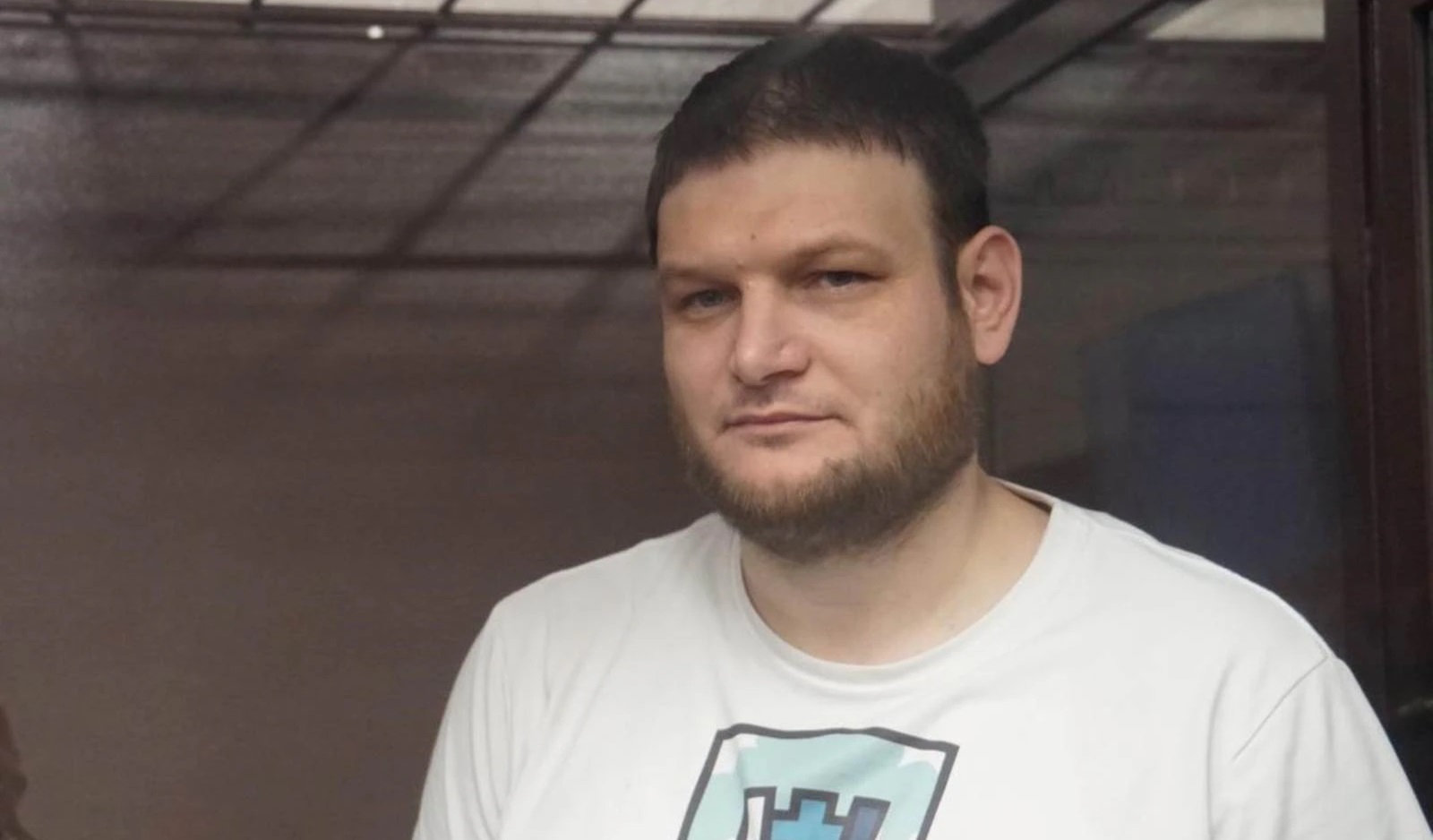Civil journalist Remzi Bekirov has been moved to a high-security facility in a Russian prison.
Civil journalist and Crimean Tatar activist Remzi Bekirov, who is serving an unlawful sentence in correctional colony No. 33 in Abakan, Republic of Khakassia, has been transferred to stricter detention conditions.
His wife Khalide Bekirova reported this, as written by “Crimean Solidarity”.
 Remzi Bekirov. Source: “Crimean Solidarity”
Remzi Bekirov. Source: “Crimean Solidarity” She specified that the last time she received a letter from her husband was on October 2. During his nearly three months in the colony, he has not been allowed to call his family even once.
In response to Bekirova's inquiry, the head of the colony, Andrey Misyura, wrote that Remzi is being held under strict punishment conditions (the so-called “SUU”) and that according to Russian law, telephone conversations for inmates under SUU “may only be permitted in exceptional personal circumstances.” Misyura cites death or serious illness of a family member of the political prisoner, which poses a threat to their life, or a natural disaster that has caused “significant material damage” to the inmate or their family as such circumstances.
The wife of the political prisoner stated that because he is not allowed to call either from the SHIZO, where he was previously held, or from the SUU, she has filed complaints with the prosecutor’s office overseeing correctional institutions and with the Federal Penitentiary Service. In the response she received, it was confirmed that apart from the three specified reasons, there are no other grounds for Remzi to make calls.
Due to his placement in the SUU, Bekirov is entitled to only two short-term and two long-term visits per year. With the permission of the colony chief, the inmate may exchange a long visit for a short one. Additionally, both types of visits can be exchanged for a phone call. He must submit a corresponding request to the colony administration, Misyura stated.
It is worth noting that since his transfer to correctional colony No. 33 in early August 2024, Bekirov has been almost continuously held in the disciplinary isolation unit (SHIZO), according to the public organization.
With breaks for several days in a quarantine cell and the general unit, he has been placed in SHIZO under various pretexts: for not wearing a head covering when going outside; for failing to provide his identification details to a colony employee; for not greeting a guard.
He was also given 10 days for violating the daily routine: he left his sleeping place at night to pray.
“He is the first of the Crimean political prisoners to be held in this colony. They are closely monitoring him and applying moral pressure. But all these nitpicks are not valid reasons to place him in SHIZO. He is not given the opportunity to write letters or make calls, so we do not receive any news from him,” Khalide Bekirova recounted.
Remzi Bekirov is a civil journalist, an activist of “Crimean Solidarity”, and a correspondent for the online publication “Grani.ru”. He conducted streams covering politically motivated persecutions against residents of the peninsula. Additionally, Remzi is the initiator of the idea of collective assistance for the families of Crimean political prisoners.
As is known, the Islamic political party “Hizb ut-Tahrir” was recognized as a terrorist organization by the Supreme Court of the Russian Federation on February 14, 2003, during a closed court session. This religious organization operates legally in Ukraine, particularly in the temporarily occupied Autonomous Republic of Crimea. Russia, contrary to international humanitarian law, applies its criminal legislation in Crimea.
Human rights defenders believe that the Supreme Court of the Russian Federation's decision was made without justification, violating transparency and equality of the parties, as only the prosecution side, namely the FSB, participated in the closed process. Representatives of the organization were not given the opportunity to present their position in the case.
At the same time, in most countries around the world, the organization operates without restrictions under national legislation. In Ukraine, the party's activities are not banned, and activists have published a newspaper, could openly speak in the media, and hold mass public events.
In February 2014, Russia launched an unlawful military operation to seize the Crimean Peninsula.
On March 10, 2022, the Southern District Military Court in Rostov-on-Don sentenced the figures of the fabricated FSB second Simferopol “case of Crimean Muslims” – Crimean journalist Remzi Bekirov, human rights defender Riza Izetov, activists Shaban Umerov, Farhad Bazarov, and Raim Ayvazov – to imprisonment for terms ranging from 15 to 19 years.
Previously, ZMINA reported that the Federal Penitentiary Service of the Russian Federation (FSIN) has already denied the transfer of Kremlin prisoner Remzi Bekirov from correctional colony No. 33 in the Republic of Khakassia to a facility closer to home for the fifth time.